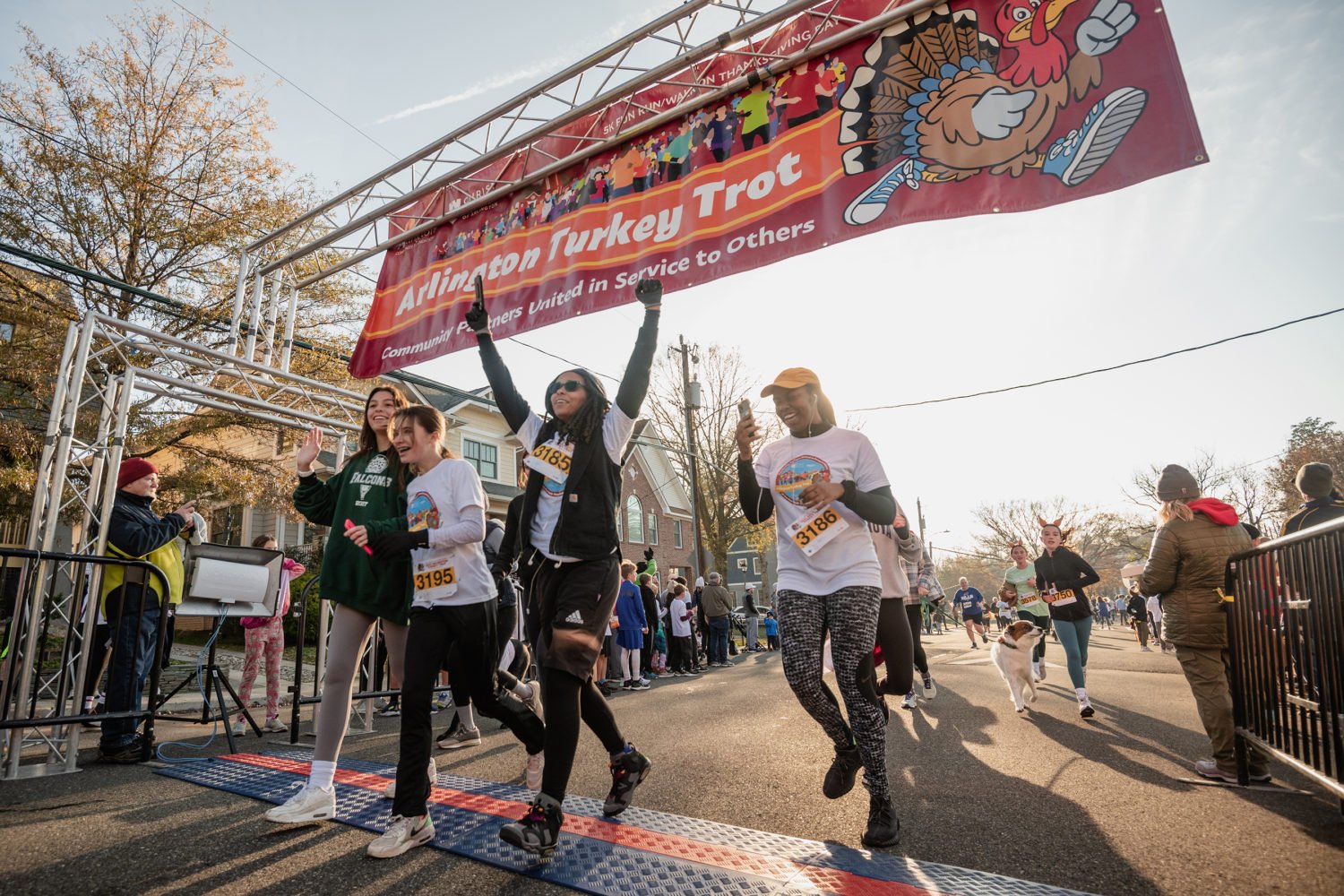For many Washingtonians who run outdoors but also work long days that are bookended by commutes, the dim morning or evening hours are the primary times to fit in runs. But now, when the sun feels like it sets at 3 PM, these runs can often happen in near-blackness. So how can you stay safe and still run in winter?
“While it’s virtually impossible to completely safeguard ourselves, as runners, from potential dangers during a run, it’s always a good idea to regularly take a safety inventory and make sure we’re doing everything within our control to stay safe,” say local running coaches Julie Sapper and Lisa Reichmann of Run Farther & Faster. Here are their guidelines for keeping safe during outdoor runs, which they developed with Montgomery County Police Department Officer Ana Hester.
• Be seen
Make sure you’re illuminated. Sapper and Reichmann suggest wearing either a headlamp, a reflective vest (yes, most are neon yellow, but that’s for a reason), or these snazzy Iron Man-esque gloves from RunLites.
• Change it up
Runners tend to be creatures of habit, but from a safety perspective, this can make you a target. Change not just your route, but also what time you run.
• Don’t post your route on social media
If you keep your social accounts public, don’t broadcast your route—not in real time, not after you’re home and you’ve foam rolled, not two weeks later. This is especially true if you don’t tend to change up your route.
• But do tell someone you’re heading out for a run
Tell a trusted friend, partner, family member, front desk security guy, someone, before you head out, sharing where you’re running and how long you plan on being gone for. Then check in with them when you return. It’s not too dramatic to instruct them to contact the police if they don’t hear from you by a certain time. And here, technology is your friend—Sapper and Reichmann like Garmin LiveTrack and Strava Beacon to allow friends and family to track you in real time (always make sure your phone is fully charged before heading out, too). But just like the advice about social media, keep those links private. For all runners, Sapper and Reichmann highly recommend using Road iD, a customizable metal tag that can be worn on your wrist, shoe, collar, even an Apple watch.
• Run with a friend or a group
When possible, run with at least one other person, especially on trails. “This is not just for power in numbers versus any predators, but simply in case something goes wrong during a run, so that one person is available to call or go for help,” they say. Or, join one of the many running groups in DC, which can double as networking or social time.

• Reconsider running with weapons
If you do run alone, reconsider running with items like mace, pepper spray, or knives as these all can be turned against you. Instead, they recommend a loud keychain alarm with or without a bright flashing light, or even just a whistle. Also, try to avoid running through desolate shopping centers and apartment complexes where there are limited exit points.
• Document and report harassment
If you experience harassment on your route, document as much as possible and report to the police. If you can, take pictures. In extreme cases, you can get a restraining order, and for less serious cases, you can request extra patrols in your area. Also take note of any people or vehicles that pass you several times.
• Avoid wearing headphones
Or if running without Cardi B seems like torture, use earbuds and wear only one. Keep the volume of your music low so you can hear what’s going on around you—approaching cars, people, and animals.
• Overall, trust your instincts
Say Reichmann and Sapper, “If you get a bad feeling about an approaching person, change directions or switch sides of the road.”



















